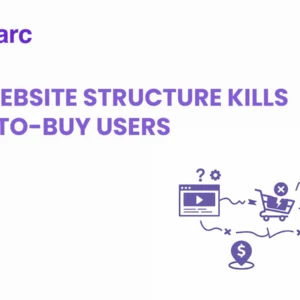Evolution AI in digital marketing
The journey of AI in digital marketing traces back to its inception, evolving from rudimentary algorithms to sophisticated machine learning models. Understanding this progression contextualizes its current impact.
AI-powered Analytics
Unlocking deeper insights from data, AI-driven analytics empowers marketers to decipher patterns, predict trends, and make informed decisions swiftly. The fusion of AI and analytics redefines precision in targeting and strategy formulation.
Personalized Marketing
AI algorithms decode consumer behavior, enabling tailored campaigns that resonate with individual preferences. The ability to deliver personalized content boosts engagement and conversion rates.
Chatbots in Customer Service
AI-driven chatbots have revolutionized customer service, offering instant, round-the-clock assistance. These bots mimic human interaction, providing seamless support and enhancing user experience.
AI, Content Marketing, and SEO
Content strategies and SEO benefit immensely from AI, refining content for maximum impact and optimizing website visibility. Social media marketing is optimized through AI-powered tools that analyze vast data, guiding marketers to craft targeted and impactful campaigns.
Automation in marketing, facilitated by AI, streamlines repetitive tasks, allowing marketers to focus on creativity and strategy.
AI in Social Media Marketing
AI-powered tools analyze vast social media data, guiding marketers to craft targeted, impactful campaigns. Personalization, trend identification, and engagement metrics are optimized.
AI-powered chatbots and virtual assistants are also revolutionizing customer service by providing instant responses and personalized assistance. They can handle a large volume of inquiries, freeing up human agents to focus on more complex issues.
Automation in Marketing
AI streamlines repetitive tasks, automating workflows and allowing marketers to focus on creativity and strategy. It expedites processes while maintaining precision.
AI in marketing is revolutionizing the way businesses reach their target audience. With its ability to analyze consumer behavior and preferences, AI-powered tools can provide valuable insights for creating highly personalized and effective marketing campaigns.
Future Trends
Anticipating AI’s trajectory in marketing unveils augmented realities, voice search optimization, and AI-generated content shaping the future landscape. These future trends have the potential to revolutionize the way marketers engage with consumers and personalize their experiences. Additionally,
AI’s continued advancement may also lead to increased collaboration between humans and machines, ultimately enhancing marketing strategies and outcomes.
Case Studies
Examining success stories where AI implementations resulted in amplified marketing strategies and increased ROI provides practical insights. These case studies showcase how AI can revolutionize customer segmentation, personalized advertising, and predictive analytics. They highlight the potential for AI to enhance marketing campaigns and drive significant business growth.
Challenges
Despite its promise, AI in marketing faces challenges such as data security, algorithm bias, and the need for upskilling talent. These challenges highlight the importance of ethical considerations and the need for continuous learning and adaptation in the field of AI marketing.
Additionally, addressing these challenges will require collaboration between marketers, AI experts, and policymakers to ensure responsible and effective use of AI technologies in the future.
Training and Education
Investing in AI education becomes pivotal for marketers to harness its potential fully. Bridging the knowledge gap ensures adept utilization. This includes providing training programs and resources that not only teach marketers about the technical aspects of AI but also emphasize the ethical implications and considerations when using AI in marketing strategies.
This ongoing education will also help marketers understand how to effectively integrate AI into their marketing campaigns while maintaining transparency and accountability.
Conclusion
The fusion of AI and digital marketing is an ongoing revolution. The integration of AI into digital marketing has undergone a transformative journey, evolving from rudimentary algorithms to sophisticated machine learning models. This evolution has reshaped marketing strategies, promising more personalized, data-driven, and efficient approaches.
AI’s impact is evident across various facets of digital marketing, including analytics, personalized marketing, customer service, content marketing, SEO, social media marketing, and automation. Embracing AI empowers marketers to craft innovative strategies, deeply connect with audiences, and stay ahead in the dynamic digital landscape.








